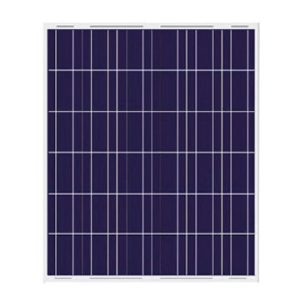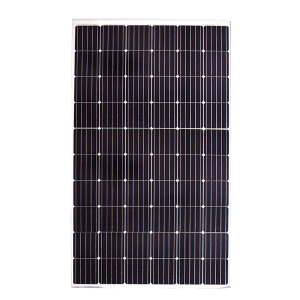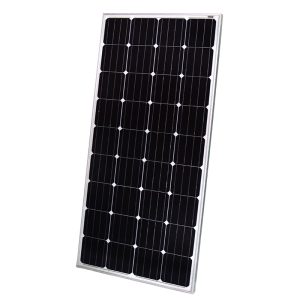285 watt solar panels are a common residential module size, offering an optimal balance of efficiency and value. Major manufacturers like Canadian Solar, JinkoSolar, and Risen offer 285W panels featuring 60 monocrystalline or polycrystalline cells.
This guide will provide a comprehensive overview on selecting, installing, and maintaining 285W panels to maximize system performance over their 25+ year lifespan.
Key Specifications of 285W Solar Panels
When comparing 285W solar panels, key technical specifications to look for include:
- Power Output: 285 watts under standard test conditions (STC)
- Solar Cell Efficiency: Typically 17-19% for monocrystalline, 15-17% for polycrystalline
- Dimensions: Roughly 65 x 39 inches
- Weight: 35-45 pounds
- Frame: Black anodized aluminum is most common
- Warranties: At least 10 years product, 25 years linear power output
Top panel manufacturers do intensive quality testing to ensure durability, longevity, and output retention in real-world conditions. Independent certifications like IEC, UL, and ISO 9001 validate production consistency and safety.
Using 285W Panels in Grid-Tied Solar Arrays
The 285 watt power rating makes these modules well-suited for residential grid-tied solar installations.
For a typical 5 kW rooftop system, you would need around 18 x 285W panels. Wire them in series into strings of 8-12 panels, then parallel the strings to achieve the target system voltage and power output.
Microinverters or power optimizers connected to each panel are recommended over central inverters for maximum energy harvest from the array. These module-level electronics mitigate shading losses and panel mismatches.
Carefully space panels to avoid shading, leaving sufficient room between rows for access and ventilation. Plan wiring runs during system design to keep cable lengths short and voltages balanced across strings.
Mounting Considerations for 285W Solar Modules
Proper mounting is critical for safety, panel lifespan, and energy production. Here are key guidelines per mounting type:
Rooftop Mounting
Rooftop is the most common placement for residential 285W panels. Consider:
- Roof type and age – assess structural integrity to weight of panels
- Orientation – aim for true south (northern hemisphere)
- Tilt angle – match site’s latitude for maximum annual output
- Use non-penetrating, wind-rated mounting equipment secured per code
- Leave >3 inches gap between panel frame and roof for ventilation
Ground Mounting
Ground-mount is an alternate option allowing solar array placement flexibility.
- Site ground panels facing south, tilted at latitude
- Set elevation for minimal shading, easy cleaning access
- Use corrosion-resistant mounting posts anchored in concrete piers
- Ensure posts height accounts for snow depth if applicable
Pole Mounting
Pole mounting elevates panels higher above shading obstructions:
- Use galvanized steel or aluminum poles embedded in concrete
- Follow manufacturer pole sizing guidelines matching site wind speeds
- Securely fasten panels and microinverters to prevent wind vibration
In any mounting scenario, follow all applicable building codes and solar mounting best practices. Obtain permits for structural enhancements as needed.
Maintaining Peak Performance of 285W Solar Panels
While reliable and durable, properly maintaining your 285 watt solar panels is key to protecting system performance and return on investment.
Cleaning 285W Solar Panels
- Clean panels 2-4 times per year, more often if excessive debris buildup
- Carefully clear snow in winter using brush/broom if heavy accumulation
- Use soft brush, mild detergent and low-pressure water for manual washing
- Check frame, electrical connections, and mounting during cleaning
Preventative Maintenance
- Visually inspect array minimum twice per year for damage, pests, etc.
- Trim overhanging tree branches causing new shading
- Professional inspection annually checking all components
- Repair minor issues immediately, replace damaged panels
Monitoring System Output
- Energy monitoring tracks daily/monthly production
- Alerts of sustained drop can indicate maintenance needs
- Compare output ratios across panels to catch underperformers
Following these solar panel care best practices will maintain your 285W system at peak generating capacity for 20-30 years.
Safety Guidelines for 285W Solar Installations
Solar power systems involve serious electrical hazards if not properly installed and maintained. Strictly follow all safety procedures below:
Electrical Safety
- De-energize all circuits before wiring changes or repairs
- Use insulated tools rated for solar DC work
- Ensure exposed wiring cannot be accessed by people or pets
Rooftop Safety
- Use fall arrest equipment, tie off points when working on roof
- Barricade work zones clearly and check stability of roofing
- Never work on wet rooftops or during high winds
General Safety
- Keep hands dry when handling panels or electrical equipment
- Follow lockout/tagout procedures for de-commissioning
- Monitor skin temperature if handling panels on hot days
Consult local building codes and NEC Article 690 for comprehensive solar safety rules. Safety mistakes can result in electric shock, arc flash burns, or even falls – stay vigilant.
Conclusion
Equipped with this comprehensive guide, you can fully leverage your 285 watt solar panels. Follow the recommendations on optimal siting, safe installation, preventative maintenance, and monitoring for 25+ years of clean solar power generation.
Maximizing system performance starts with selecting durable panels from leading brands, using quality components for interconnections and mounting, and proper placement for sun exposure.
Combine smart solar panel care with annual professional inspections to protect your green energy investment and environmental benefits for decades to come. Reach out with any other questions on optimizing 285W residential solar modules.



